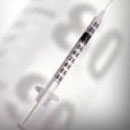Guatemalans to file appeal over STD experiments
CNN
June 17, 2012
The victims and heirs of US experiments involving sexually transmitted diseases and human subjects in Guatemala between 1946 and 1948 will appeal following the dismissal of their lawsuit against the US government.
U.S. District Judge Reggie Walton ruled this week that the Guatemalans could not sue the United States for grievances that happened overseas. The judge also dismissed claims against current Obama Administration health officials, including Human Services Secretary Kathleen Sebelius, because they were not personally involved in the experiments.
The studies on unknowing Guatemalan subjects "is a deeply troubling chapter in our nation's history," Walton wrote in his decision. But, he said, under federal law, the court can not do anything for them.
"Their plea are more appropriately directed to the political branches of our government, who, if they choose, have the ability to grant some modicum of relief to those affected by the Guatemalan study," the decision states.
The United States has apologized for the study, and President Barack Obama asked the Presidential Commission for the Study of Bioethical Issues to look into the details of the research and to assure him that current rules protect people from unethical treatment.
The controversy centers on the U.S. Public Health Service Sexually Transmitted Disease Inoculation Study of 1946-1948, which was conducted to determine the effectiveness of penicillin in treating or preventing syphilis after subjects were exposed to the disease. Gonorrhea and chancres were also studied. Penicillin was a relatively new drug at the time.
The tests were carried out on female commercial sex workers, prisoners in the national penitentiary, patients in the national mental hospital and soldiers. According to the study, more than 1,600 people were infected: 696 with syphilis, 772 with gonorrhea and 142 with chancres. The lawsuit filed by the Guatemalan victims and their heirs compared the project to the Tuskegee syphilis experiment in Alabama.
"Naturally, we are disappointed by the decision and strongly disagree that these doctrines of immunity apply under the extreme circumstances of this case," said Terrence Collingsworth, attorney for the plaintiffs, in a statement. "We plan to appeal and will continue to seek justice for the victims of these atrocious human rights violations committed by the U.S. Government."
The government successfully argued that because the harm was suffered in a foreign country, and because the Guatemalans have not exhausted other administrative solutions, the United States has sovereign immunity under the Federal Tort Claims Act.





 Share your thoughts in the Forum
Share your thoughts in the Forum
